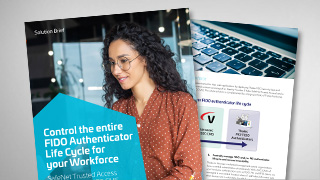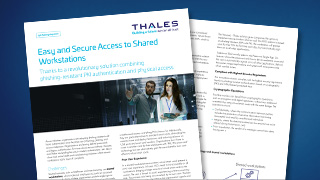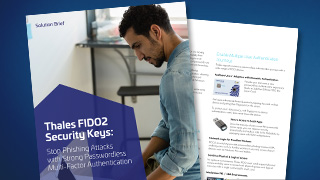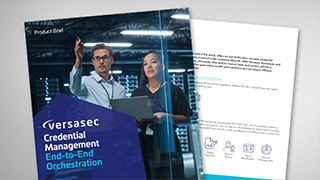What is a Credential Management System?
Organizations require user credentials to control access to sensitive data. Deploying a credential management system (CMS) is critical to secure all systems and information.
Authorities must be able to create and revoke credentials as customers and employees come and go, change roles, and as business processes and policies evolve. Furthermore, the rise of privacy regulations and other security mandates increases the need for organizations to demonstrate the ability to validate the identity of online consumers and internal privileged users.
Logical Access
Remote Access
Data Encryption
Digital Signature
Physical Access
Visual Identification
Lifecycle Management
Website Authentication
Effortless Credential Management
Versasec credential management systems, vSEC:CMS and vSEC:CLOUD, streamline all aspects of managing credentials by integrating all systems involved in the credential lifecycle.
Improve efficiency
Free up resources and time previously allocated to manual tasks and various software.
Governance made easy
End-to-end credential orchestration guarantees results and workflows are consistent, efficient, secure, and compliant with company guidelines.
High compatibility
VSEC: CMS integrates with Thales products to provide business and organizations with end to end identity security solutions.
Versasec credential management systems integrate with:
- Enterprise directories
- Certificate authorities
- Physical access control systems
- Email servers
- Log servers
- Biometric fingerprint readers
- PIN mailers
- And more
Thales and Versasec integrated solution for managing digital identities
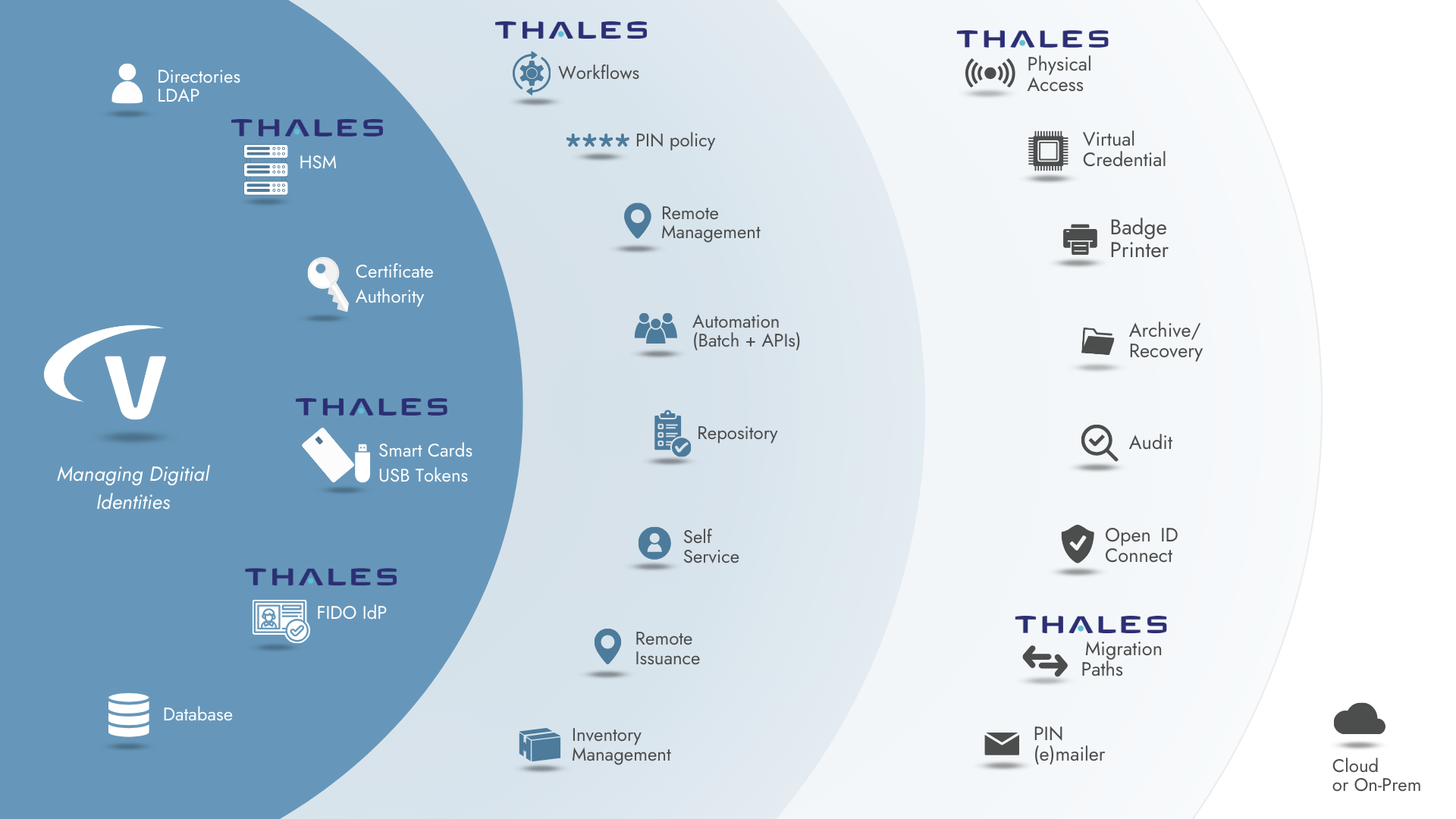
Which Thales authenticators can you manage in vSEC:CMS and vSEC:CLOUD?
PKI credentials:
Versasec products are fully functional with minidriver-enabled PKI credentials such as SafeNet IDPrime, SafeNet IDPrime PIV, SafeNet IDPrime Virtual and SafeNet eTokens.
FIDO authenticators:
In addition, Versasec products are supporting a large scale of Thales FIDO authenticators, including SafeNet eToken FIDO, SafeNet eToken Fusion and SafeNet IDPrime FIDO series.
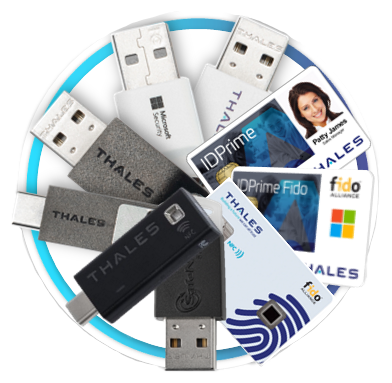
Easy and secure access to shared workstations thanks to vSEC:CMS and SafeNet IDPrime Virtual
Versasec and Thales are joining forces to enable frontline workers accessing easily and securely to shared workstations. The innovative solution combines RFID technology with PKI Virtual smart cards.
Easy to use
- Use existing RFID badges to access workstations
- Add SSO to web apps
Phishing-resistant
- PKI based MFA
Easy to implement
- No additional hardware needed for deployment
One single badge to access quickly and securely to buildings and shared workstations

Solution Brief
Easy and Secure Access to Shared Workstations
Shared workstation security with Thales and Versasec is a revolutionary cybersecurity solution combining phishing-resistant PKI authentication and physical access.
Control the entire FIDO Authenticator Life Cycle for your Workforce
Thales and Versasec enable organizations using PKI to securely adopt FIDO-based authentication for their web applications, giving them full control over the entire FIDO authenticator life cycle, in the same way they manage their PKI credentials.
These organizations will get all the benefits from a modern form of authentication (FIDO2), while optionally maintaining the usage of PKI for certificate-based-authentication, digital signature, or data encryption.
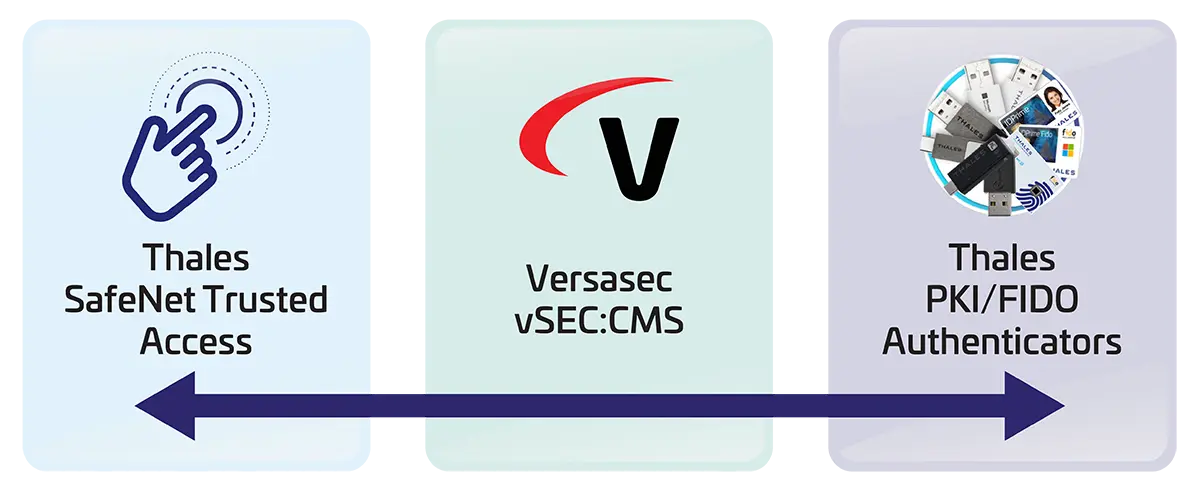
FIDO authenticator life cycle
